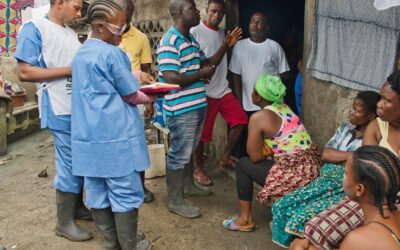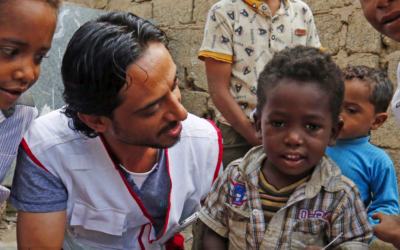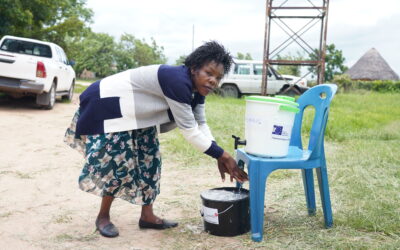Summary
An estimated 13 per cent of people in low-income countries have been vaccinated against COVID-19. Accelerating COVID-19 vaccine uptake is essential if countries are to achieve the WHO target of 70 per cent vaccination coverage. COVID-19 vaccine supply is no longer a major challenge; however, low risk perception of COVID-19 in light of easing of pandemic related restrictions by governments, coupled with other competing health and economic priorities, has resulted in a decline in vaccination uptake. Additionally, suboptimal vaccine delivery strategies, low confidence in vaccines, lack of trust in health systems and authorities, and the absence of COVID-19 vaccination as a social norm present significant barriers to achieving
higher uptake. Addressing this requires political leadership and effective approaches to build vaccine demand in high-risk and vulnerable communities.
To intensify support for priority countries, WHO, UNICEF, GAVI and international partners, including the International Federation of Red Cross and Red Crescent Societies (IFRC) and the World Bank, have launched the COVID-19 Vaccine Delivery Partnership (CoVDP). The CoVDP works with governments and NGOs to devise and deliver evidence-based strategies informed by local data. To characterize and catalogue innovative, promising, and proven demand interventions, a virtual meeting was held on 22 and 23 June 2022, co-hosted by UNICEF; the Ministry of Health, Ethiopia; and the Government of Canada; in collaboration with the CoVDP and the global Vaccine Confidence Task Team (VCTT). The event
featured a high-level roundtable attended by Ministers of Health, representatives from global and regional agencies and civil society organizations, and was complemented by technical sessions focused on four areas: behaviourally informed interventions, capacity strengthening to improve service quality, misinformation, and community engagement.
Case studies explored diverse approaches to bring services closer to priority populations; the importance of formative research to inform context-specific interventions; the value of consulting and co-creating interventions with communities; and the importance of engaging in two-way conversations, including through community volunteers, women’s groups, SMS communication and community radio programming. Increasing COVID-19 vaccination rates remains an urgent task, and progress is possible where there is strong political will. The event illustrated the power of peer-to-peer learning to inspire effective approaches to solving shared problems in the field of vaccine demand.
Find below full report in English and French.





